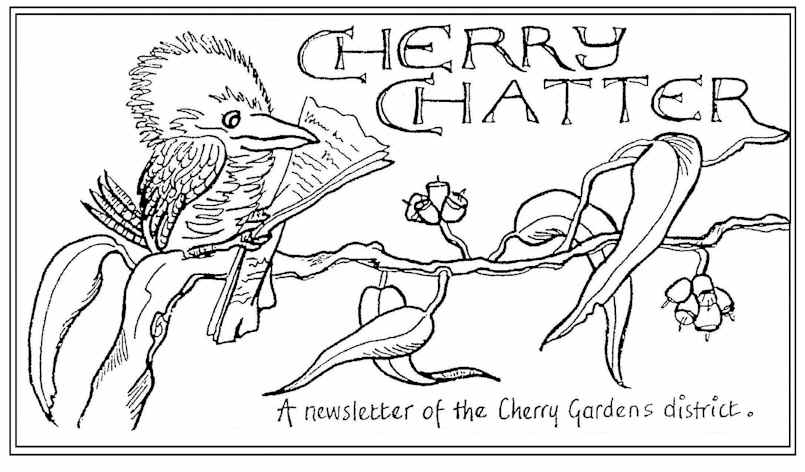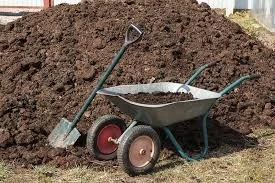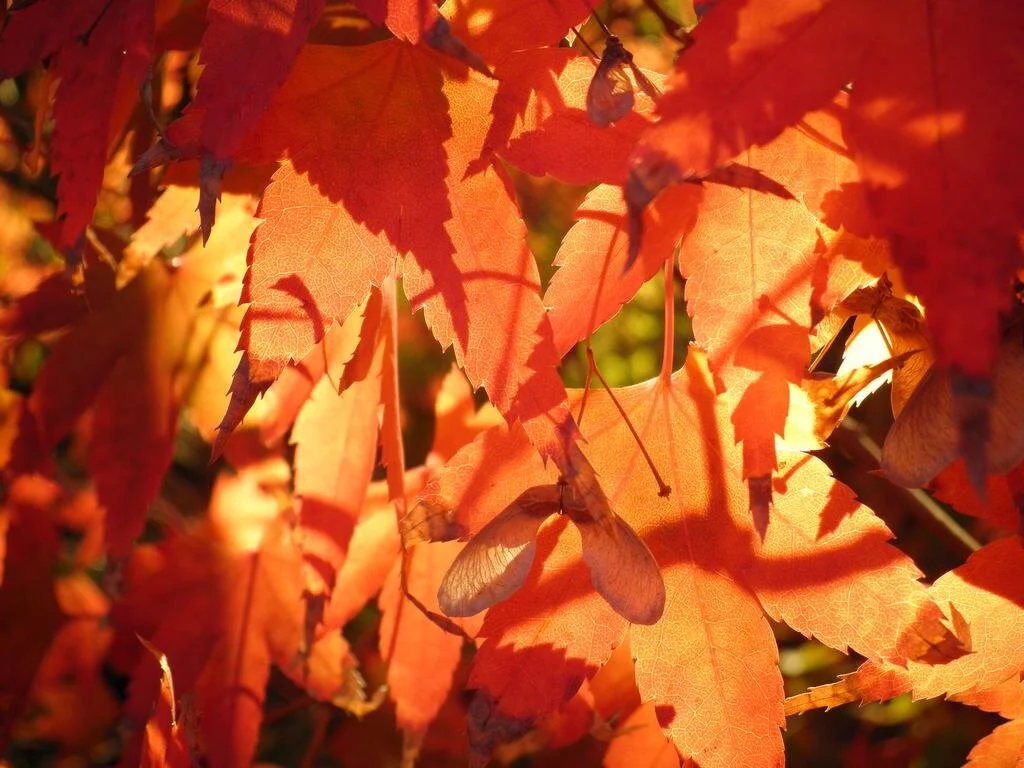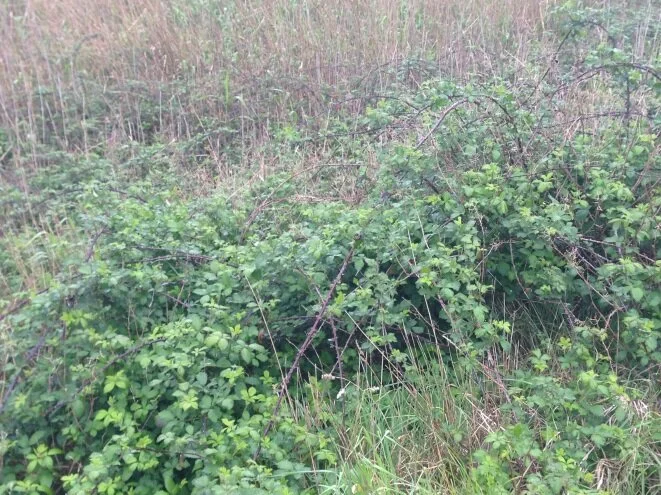Garden Club
NEXT MEETING
February 10th
We will meet at Adelaide Advanced Trees for a tour of their nursery with Jordan Meet at 264 Cherry Gardens Road at 6.30pm, following the tour we will resume our meeting in the Church meeting room.
Meetings are held in the Cherry Gardens Uniting Church meeting room, at 7.30pm usually on the 2nd Monday of the month from February to November.
President: Ray Wise: raywise@hotmail.com.au or 0405 273 003
Secretary: Shirley Callaghan: shirleyc5159@gmail.com or 0403 801 916
GEORGE'S GARDENING SUGGESTIONS FOR January 2020
Watering is always high on a gardener’s priority list at this time of the year, so if you just want to maintain a small patch of herbs or summer vegetables why not look at establishing a wicking bed? It takes a bit of effort to set up, but the work involved will be paid back by the results you will achieve, with far less watering!
Most roses have finished their flush of flowers by now and if you have not already taken off the dead heads now is a good time to do it. For roses with lots of dead heads, no black spot and no thorns you can do the job with a pair of hedge shears - just cut them all off and let them drop to the ground for mulch. Obviously, you will need to be more fastidious with varieties that do not fall into the above category.
Tomatoes are a favourite summer crop and need to have regular watering to prevent blossom end rot. Apply a side dressing of sulphate of potash for strong plants and a bountiful crop with good flavour. You can still plant out seedlings; give Burnley Bounty a try as they will crop well into the cooler months
Stone fruit trees should be summer pruned now to keep them in shape, it is a good time to fertilize these trees to keep them healthy.
Weeds will be invading parts of the garden where there is little or no mulch, a good time to remove them is immediately after you have watered when the soil is damp and soft
Last Meeting
Every speaker we have seems to surpass the last in some way. Kris Messenger and James of “Bugs and Slugs” taught us about the vital role, albeit an increasingly precarious presence, of beneficial, predatory insects in our gardens and environment and most usefully, about the formation of their habitat. Kris explained that in the formation of hollows in large ancient trees. in our vicinities shelters and houses all manner of beneficial, predatory beetles and insects which play a huge role in reducing the populations of sucking insects, which prey on our garden plants.
Many of us had no idea that of Earth’s 36 Fila of creatures, only one Fila is made up of all the animals, birds, fish and other vertebrates we think of as earths creatures! Then astonishingly the majority, the remaining 35, are made up of invertebrates and that includes insects. Kris explained, aided by of a piece of holey 300-year-old tree trunk, how insects play their part in, one after the other, forming a hollow which could eventually, also, one day, provide vital habitat for a large marsupial or bird.
A large moth, like a rain moth may have sprayed its eggs around and some landed on a tree trunk. When the caterpillars emerge, they might because they have no cocoon, burrow down into the tree for shelter. When in time it vacates this home, another, possibly slightly larger, invertebrate might consecutively, over the years, utilize and enlarge the tunnel to suit their purposes. This type of tenancy, possibly by various insects, continues for decades until, possibly moisture enters, dry rot occurs, fungi play their role. Each vacation makes it easier for some larger creature to enter and burrow further until, eventually, after many episodes of sheltering, burrowing, vacating, etc, - a hollow is formed which is large enough for a vertebrate to use. Kris drew our attention to the alarming loss of these large trees which might contain dozens of hollows in various stages of development, providing along the way, habitat for many creatures and insects until the older, larger ones might be used by creatures such as sugar gliders, or pygmy possums. If the tree which by then, may have been substantially hollowed out by termites, should one day fall over Echidnas may even find shelter in the log.
It was easy to understand Kris’s belief that maybe it is because so few people are aware of the role of beneficial predatory insects in the garden environment and eventually the development of essential hollow log habitat, that we are not more pro-active in ensuring that very large significant trees remain in our environments. The Tree protection by-laws cannot cover every scenario and it is up to us gardeners, who love our environments, to help inform, protect and so on these vital parts of the environment. For a gold coin donation, and so that they are aware of these facts, Kris runs “Little Buggers” a group for children and young people at Bower Road, Semaphore on the last Saturday of every month at 10am to 11:30am which coincides with the veggie swap. As always, to end the evening a really, lively plant auction followed, and a great “supper with our cuppa’s” was shared amidst lively conversation.












